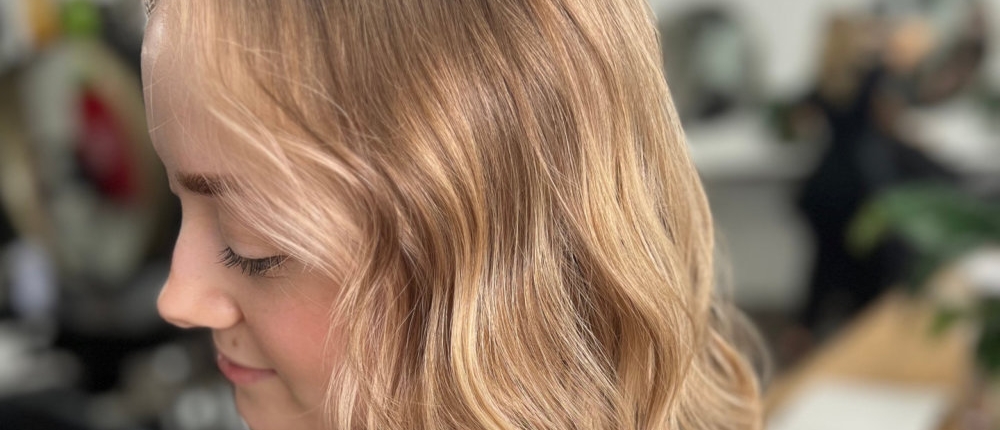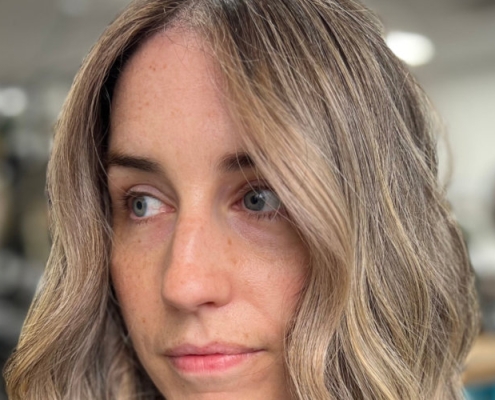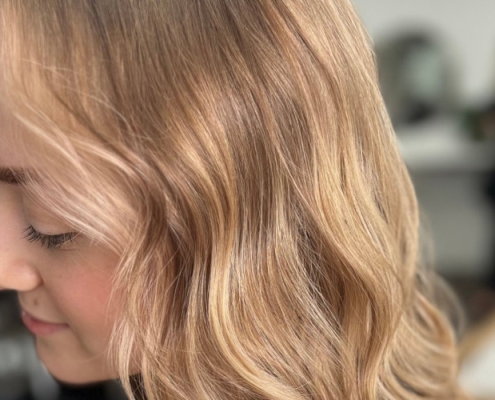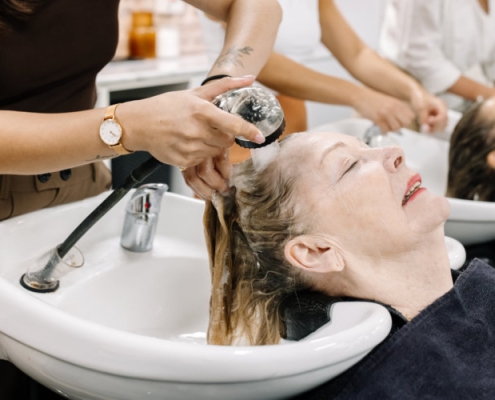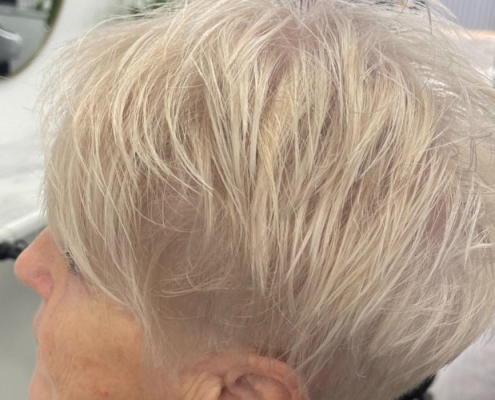Thinning Hair and Diet: Nutrients You Need for Stronger Strands
Hair thinning can be caused by a variety of factors, including genetics, stress, and medical conditions. However, one of the most overlooked contributors to hair health is diet. What you eat plays a critical role in maintaining strong, healthy hair, and deficiencies in certain vitamins and minerals can lead to excessive shedding, weak strands, and slow growth.
By incorporating hair-boosting nutrients into your diet, you can strengthen your strands and promote hair growth naturally. In this guide, we will explore the essential nutrients for hair health, the best foods to include in your diet, and the link between diet and thinning hair.
How Diet Affects Hair Health
Just like your skin, nails, and muscles, your hair relies on a steady supply of nutrients to grow and stay strong. Hair follicles require proteins, vitamins, and minerals to produce new hair and maintain the strength of existing strands.
A poor diet can lead to:
- Excessive shedding: Nutrient deficiencies can cause more hair to enter the resting (telogen) phase, leading to increased shedding.
- Slow hair growth: Lack of essential vitamins and minerals can disrupt the hair growth cycle, resulting in slow or stalled growth.
- Weak and brittle strands: Insufficient protein and key nutrients can lead to hair that breaks easily.
- Thinning and lack of volume: Poor nutrition can cause hair to become finer and lose its density.
If you’ve been experiencing persistent hair thinning, it may be time to evaluate your diet and ensure you are getting the right nutrients for optimal hair health.
Essential Nutrients for Hair Growth
Certain vitamins and minerals are essential for strong, healthy hair. Below is a list of key nutrients that support hair growth and prevent thinning.
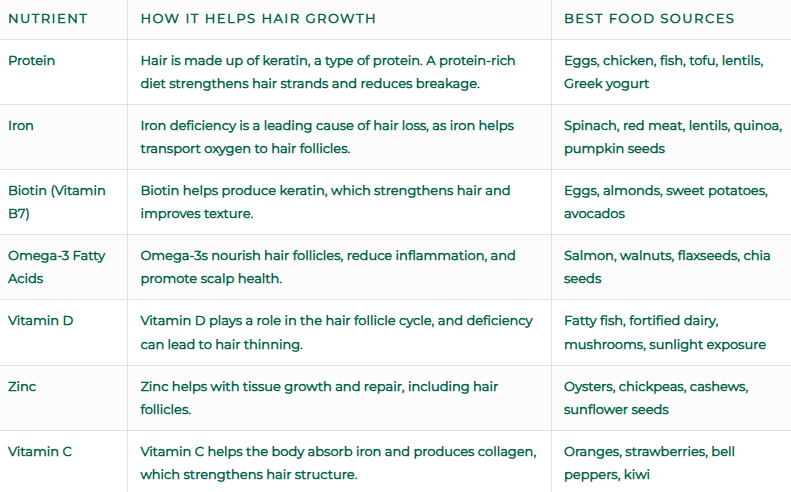
Best Foods for Hair Growth
Incorporating nutrient-dense foods into your diet can help prevent thinning hair and encourage stronger, thicker strands. Here are some of the best foods for hair growth:
1. Eggs
Eggs are rich in biotin and protein, two key nutrients for hair health. They also contain zinc and selenium, which support scalp health.
2. Spinach
Spinach is packed with iron, folate, and vitamin C, all of which help strengthen hair follicles and improve circulation to the scalp.
3. Salmon
Salmon and other fatty fish provide omega-3 fatty acids and vitamin D, which help keep hair hydrated and support follicle function.
4. Nuts and Seeds
Almonds, walnuts, and sunflower seeds contain biotin, vitamin E, and omega-3s, all of which help improve hair strength and shine.
5. Sweet Potatoes
Sweet potatoes are rich in beta-carotene, which the body converts into vitamin A to promote hair cell growth.
6. Greek Yogurt
Greek yogurt is an excellent source of protein and vitamin B5, which help prevent hair thinning and boost follicle health.
Dietary Changes to Prevent Hair Thinning
Making simple yet strategic changes to your diet can have a profound impact on your hair’s strength, thickness, and overall health. A well-balanced diet ensures that your hair follicles receive the nutrients they need to function optimally, reducing the risk of excessive shedding, brittle strands, and slow growth.
Below are the most important dietary adjustments to incorporate into your daily routine to support stronger, fuller hair.
1. Eat More Protein
Hair is made up primarily of a structural protein called keratin. Without adequate protein intake, hair strands weaken, leading to increased breakage, thinning, and slower growth.
Why Protein Matters for Hair Health
- Builds and repairs hair strands: Protein helps form new keratin, reinforcing the strength and elasticity of hair.
- Reduces hair shedding: A lack of protein in the diet has been linked to a condition called telogen effluvium, which causes excessive hair shedding.
- Supports follicle function: Hair follicles rely on amino acids from protein to remain active and productive.
Best High-Protein Foods for Hair Growth
- Eggs: Contain all essential amino acids and biotin, a key nutrient for hair growth.
- Lean meats (chicken, turkey): Rich in high-quality protein to strengthen hair strands.
- Fish (salmon, tuna, sardines): Provide protein along with omega-3 fatty acids, which nourish the scalp.
- Legumes (lentils, chickpeas, black beans): A great plant-based protein source for vegetarians.
- Greek yogurt: High in protein and vitamin B5 (pantothenic acid), which promotes hair thickness.
To maximize protein intake for hair health, aim to include at least one high-protein food source in every meal.
2. Stay Hydrated
Hydration is often overlooked when it comes to hair health, but a lack of water intake can directly impact scalp moisture and hair strength. Dehydration can lead to a dry, flaky scalp, brittle hair, and increased breakage.
How Hydration Supports Hair Health
- Maintains scalp moisture: A hydrated scalp prevents dandruff and irritation, both of which can hinder hair growth.
- Improves nutrient absorption: Proper hydration ensures that vitamins and minerals essential for hair health are effectively transported through the bloodstream.
- Reduces hair breakage: Well-hydrated hair strands are more elastic and less prone to snapping.
Hydration Tips for Healthy Hair
- Drink at least 2-3 liters (8-12 cups) of water per day: Adjust based on climate, physical activity, and individual hydration needs.
- Consume hydrating foods: Cucumbers, watermelon, oranges, and celery have high water content.
- Limit dehydrating beverages: Reduce intake of caffeine and alcohol, which can contribute to dehydration.
Keeping your body well-hydrated is a simple yet effective way to support hair health from the inside out.
3. Balance Your Diet
A well-rounded diet is crucial for hair health. Restrictive diets, crash dieting, and nutrient imbalances can lead to deficiencies that directly impact hair growth.
Why a Balanced Diet Matters
- Prevents nutrient deficiencies: Hair requires a combination of vitamins, minerals, and macronutrients to grow properly.
- Maintains energy levels for hair growth: Extreme calorie restriction can slow down hair follicle activity.
- Supports hormone balance: Nutrient deficiencies can disrupt hormonal equilibrium, which is essential for hair maintenance.
Common Diet Mistakes That Can Cause Hair Thinning
- Low-carb diets: Restricting carbohydrates can reduce energy supply to hair follicles, leading to increased shedding.
- Vegan or vegetarian diets without proper supplementation: While plant-based diets can be healthy, they may lack iron, B12, and omega-3s, which are essential for hair growth.
- Skipping meals: Missing meals or following intermittent fasting without proper nutrition can deprive hair follicles of vital nutrients.
How to Balance Your Diet for Hair Health
- Include protein, healthy fats, and complex carbohydrates in every meal.
- Eat a variety of fruits and vegetables to get a broad spectrum of vitamins and minerals.
- If following a restrictive diet, consult a nutritionist to ensure you’re meeting all nutrient needs.
Eating a balanced diet ensures that your hair receives the nutrients it needs to remain strong and healthy.
4. Take Supplements if Needed
While it’s best to obtain nutrients from whole foods, certain individuals may benefit from supplements to fill dietary gaps.
When to Consider Supplements
- If you have a diagnosed deficiency: Blood tests can reveal deficiencies in iron, vitamin D, or biotin.
- If you have dietary restrictions: Vegans, vegetarians, and those with food allergies may need supplements to meet their nutrient needs.
- During periods of stress or illness: Stress and illness can deplete nutrient stores, making supplementation beneficial.
Best Supplements for Hair Growth
- Biotin: Supports keratin production and strengthens hair.
- Iron: Essential for oxygen transport to hair follicles.
- Vitamin D: Plays a role in hair follicle cycling.
- Omega-3 fatty acids: Nourish hair follicles and reduce scalp inflammation.
- Collagen peptides: Help improve hair elasticity and thickness.
Before taking supplements, consult a healthcare professional to determine your specific needs.
Final Thoughts
By making these dietary changes, you can significantly improve the health of your hair, reduce thinning, and promote stronger, fuller strands. Focus on eating a protein-rich, nutrient-dense diet, staying hydrated, balancing your meals, and supplementing where necessary.
If you are experiencing persistent hair thinning despite making dietary changes, it may be time to consult a specialist. Learn more about when to seek expert advice: Is It Time to See a Specialist for Your Thinning Hair?.
For additional guidance on managing thinning hair, check out:
- Why Is My Hair Thinning? Common Causes and Solutions
- Best Hairstyles for Thinning Hair to Add Volume
With the right diet and lifestyle choices, you can maintain healthy, vibrant hair for years to come.

